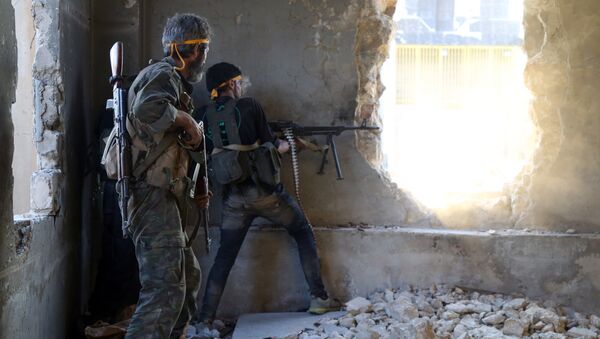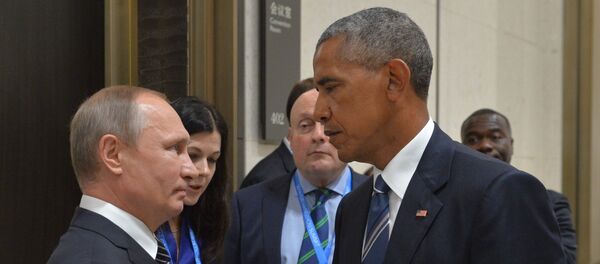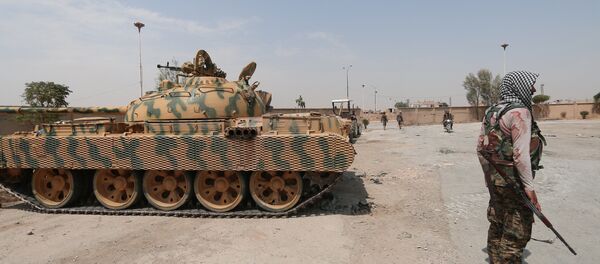The partition of Syria would be "the best option," according to US journalist Bret Stephens of the Wall Street Journal.
Stephens believes that the war in Syria is a "complex business," as it has involved at least four foreign states — the US, Russia, Turkey and Iran — and a number of non-state actors and paramilitary groups.
"The point of partition isn't to solve all of Syria's problems. It's to shrink them to more manageable dimensions. A future Alawite state along Syria's Mediterranean coast might ensure the political survival of the Assad dynasty. But it could be a secure ethnic homeland, free from the brutal entanglements of the rest of Syria, especially if it has security guarantees from Russia. A Kurdish zone, joined to Iraqi Kurdistan, would be viewed as a threat by the Turks. But it could be a safe haven for civilians if defended by US air power," Stephens suggests.
"It's true that for each of these points there are reservations and doubts," Stephens admits.
The journalist argues that it would be a step in the right direction, referring to the precedent of Yugoslavia that had been divided into seven separate states.
However, the prospects described by Stephens are not as "bright" as they seem.
Moscow has repeatedly stated that maintaining Syria's territorial integrity is important for Russia and emphasized that only the Syrians themselves could make legitimate decisions about the future of their country.
As French President Francois Hollande wrote on his Facebook page Monday, "nothing would be worse than the partition of Syria."
"In Syria, I alerted the Russian President on the gravity of the humanitarian crisis in Aleppo and on internationalization of the conflict. The urgency is to put an end to this disaster by an armistice and go to the faster towards the negotiation. We have a common goal, it is the fight against terrorism. And nothing would be worse than the partition of Syria," Hollande underscored.
In an interview with RIA Novosti Togrul Ismail, a docent of the Faculty of International Relations at the TOBB University of Economics and Technology in Ankara, drew attention to the fact that both Russian Foreign Minister Sergei Lavrov and US Secretary of State John Kerry highlighted the inadmissibility of the dismemberment of Syria.
"This is a positive thing that the Russian Federation and the United States were able to find common ground on the issue of the inadmissibility of the dismemberment of Syria. Turkey has adhered the same position since the very beginning of the Syrian conflict — this is, firstly, the preservation of its territorial integrity and, secondly, the inadmissibility of the creation of any [sovereign] entities [within Syria]. It is not just about the Syrian Kurds, but it is also about the Daesh terrorist group," Ismail told RIA Novosti.
Interestingly enough, even Syrian opposition representatives are rejecting the idea of splitting the country up.
George Sabra, the deputy head of the High Negotiations Committee (HNC) told London-based Arabic international media outlet Asharq al-Awsat that he does not believe that "the Druze, Christians, Sunnis, Alawites, Kurds and Assyrians would be able to enjoy democracy in sectarian mini-states, cantons and federations."
"Discussions on the future of Syria as a central state or as federations can only be made when the country is returned to the Syrian people," Sabra stressed, adding that he believes that Syrian President Bashar al-Assad should step down.
In any event, the discussions about Syria's partitioning "are unrealistic," the Syrian opposition official emphasized.





